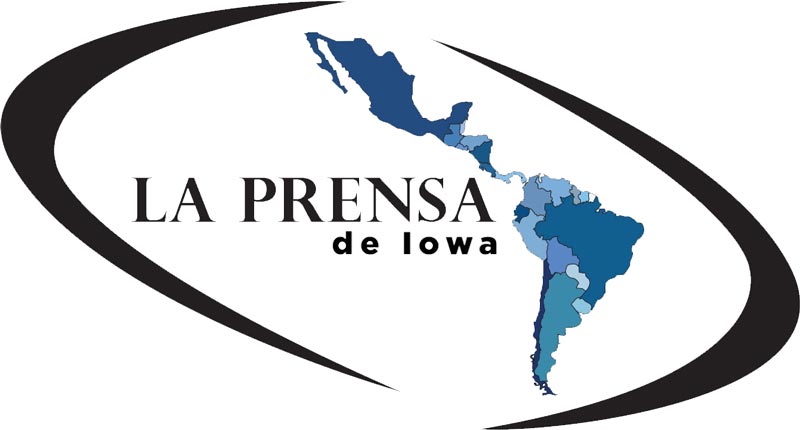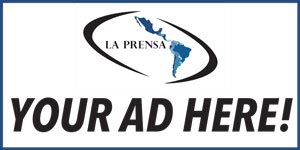NUEVO PROGRAMA DE APOYO DEL GOBIERNO PARA TRABAJADORES IMMIGRANTES VICTIMAS DE ABUSOS LABORALES
/1. ¿Por qué se ha creado esta ayuda?
Los trabajadores a veces tienen miedo de denunciar violaciones de la ley por parte de empleadores explotadores o de cooperar en investigaciones de normas laborales y de empleo porque temen ser despedidos, deportados u otras represalias. El gobierno piensa que, si se apoya a estas víctimas, las agencias gubernamentales investigando casos tendrán el apoyo de estas personas sin miedos. El objetivo es el proteger a todos los trabajadores mientras que el gobierno puede investigar. Las agencias laborales deben de apoyar enviando un “formulario de declaración de interés.”
2. ¿Es esto diferente de la visa U o la visa T?
Si. Las visas U o T otorgan estatus final a la persona. Esta protección ofrecida por el gobierno solo otorgara protección temporal y permiso de trabajo, pero NO estatus legal final. Una persona podría calificar para esta protección y además al mismo tiempo para una visa U o visa T.
3. ¿Cuál es el proceso para obtener esta protección y el permiso de trabajo?
Las agencias gubernamentales investigando un crimen tendrán que comunicarse con laborenforcement@dhs.gov e incluyendo “una declaración de interés” que aborda lo siguiente:
Detalla la naturaleza de su investigación y la necesidad de apoyo del DHS;
Describe los intereses de aplicación de la agencia que proporcionan la base para su solicitud;
Describe el lugar de trabajo y los trabajadores que pueden ayudar con la investigación de la agencia; y
Proporciona un punto de contacto de la agencia quien pueda abordar las preguntas del DHS.
Las solicitudes aceleradas de una agencia laboral o de empleo federal, estatal o local deben ser realizadas por un funcionario de alto nivel de esa agencia.
4. ¿Qué es la acción diferida?
La acción diferida es una forma de discrecionalidad procesal para diferir la acción de remoción (deportación) contra un no-ciudadano por un cierto período de tiempo. Aunque la acción diferida no confiere estatus legal ni excusa ningún período pasado o futuro de presencia ilegal, una acción diferida otorgada a un no-ciudadano se considera legalmente presente en los Estados Unidos para ciertos fines limitados, mientras la acción diferida esté vigente. Si se le otorga la acción diferida, un no-ciudadano puede ser elegible para autorización de empleo. DHS puede terminar la acción diferida en cualquier momento, a su discreción.
5. ¿Si terminan mi acción diferida, me deportarán?
DHS todavía está desarrollando las políticas de este programa de protección, pero por regla general es aconsejable consultar con un abogado especialista en inmigración para determinar posibles riesgos.
6. ¿Cómo funciona el proceso centralizado de acción diferida?
Un no-ciudadano que solicita una acción diferida basada en una investigación de la agencia laboral presenta una solicitud por escrito de acción diferida mediante la presentación de:
Una solicitud de acción diferida firmada por el no-ciudadano que describe la base de su solicitud de acción diferida;
Una copia de la carta emitida por la agencia laboral o de empleo que detalla la naturaleza de la investigación o enjuiciamiento y la necesidad de apoyo del DHS;
Evidencia para establecer que el trabajador se encuentra dentro de la categoría de trabajadores identificados en la carta de la agencia laboral o de empleo, como formularios W-2, talones de pago, tarjetas de tiempo u otra evidencia documental para demostrar que el trabajador estuvo empleado durante el período en la declaración de agencia laboral o de empleo;
Evidencia de cualquier factor adicional que respalde un ejercicio favorable de discreción;
Prueba de la identidad y nacionalidad del no-ciudadano;
Si corresponde, cualquier documento utilizado para ingresar legalmente a los EE. UU. u otra evidencia relacionada con el historial o estado migratorio del no-ciudadano;
Formulario G-325A, Información Biográfica (para Acción Diferida);
Formulario I-765, Solicitud de Autorización de Empleo, con la tarifa aplicable no-reembolsable; y, Solicitud de Autorización de Empleo, con la tarifa correspondiente, no-reembolsable; y
Formulario G-28, Aviso de Entrada de Comparecencia como Abogado o Representante Acreditado, si aplica.
7. ¿Puede un no-ciudadano al que se le otorgó la acción diferida ser elegible para una autorización de empleo?
Las personas a las que se les otorgó la acción diferida pueden ser elegibles para autorización de empleo bajo la categoría 8 C.F.R. 274a.12(c)(14), bajo las regulaciones existentes que les exigen demostrar una necesidad económica para el empleo.
Los no-ciudadanos que presenten una solicitud de acción diferida a través de este proceso centralizado deben presentar simultáneamente su Formulario I-765, Solicitud de autorización de empleo, con la tarifa correspondiente.
El otorgar la acción diferida es un programa discrecionario. Es decir, el gobierno puede o no aprobar la solicitud. Si la niegan, no devolverán el dinero.
8. Si se otorga la acción diferida a través de este proceso, ¿cuándo termina?
Si se aprueba la acción diferida, se puede otorgar por un período de hasta dos años, sujeto a terminación en cualquier momento. El beneficiario también puede ser elegible para solicitudes subsiguientes de acción diferida, que se adjudicarán caso por caso cuando una agencia laboral proporcione una base para dicha solicitud en relación con los intereses de investigación o aplicación en curso de la agencia laboral.
9. ¿Si fui víctima de abuso laboral hace tiempo, todavía califico?
Se prevé que este programa es para ayudar a las agencias laborales nacionales, estatales y locales en investigaciones y casos en contra del empleador que están vigentes ahora.
10. ¿Puedo pedir también apoyo para mi familia y permisos de trabajo?
No, este es un programa individual para víctimas de abusos laborales que colaboran en investigaciones.
11. ¿Dónde puedo obtener más información?
Para información de fiar, diríjase siempre a la página web del gobierno. Se espera que el gobierno comparta más detalles en las próximas semanas. https://www.uscis.gov/es/trabajar-en-estados-unidos
Translation
NEW GOVERNMENT SUPPORT PROGRAM FOR IMMIGRANT WORKERS VICTIMS OF LABOR ABUSES
1. Why has this help been created?
Workers are sometimes afraid to report violations of the law by exploitative employers or to cooperate in labor and employment standards investigations because they fear being fired, deported, or other retaliation. The government thinks that if these victims are supported, government agencies investigating cases will have the support of these people without fear. The goal is to protect all workers while the government can investigate. Employment agencies must support by submitting a “declaration of interest form.”
2. Is this different from the U visa or the T visa?
Yes. U or T visas grant final status to the person. This protection offered by the government will only grant temporary protection and work authorization, but NOT final legal status. A person could qualify for this protection and also qualify for a U visa or T visa at the same time.
3. What is the process to obtain this protection and the work permit?
Government agencies investigating a crime will need to contact laborenforcement@dhs.gov and include a “statement of interest” that addresses the following:
Details the nature of your investigation and the need for DHS support;
Describes the agency's application interests that provide the basis for your application;
Describes the workplace and workers who can assist with the agency's investigation; Y
Provides an agency point of contact who can address DHS questions.
Expedited requests from a federal, state, or local employment or labor agency must be made by a high-level official of that agency.
4. What is deferred action?
Deferred action is a form of prosecutorial discretion to defer removal (deportation) action against a non-citizen for a certain period of time. Although deferred action does not confer legal status or excuse any past or future periods of unlawful presence, a deferred action granted to a non-citizen is considered lawfully present in the United States for certain limited purposes while the deferred action is in effect. If deferred action is granted, a non-citizen may be eligible for employment authorization. DHS may end deferred action at any time, at its discretion.
5. If they end my deferred action, will I be deported?
DHS is still developing the policies of this protection program, but as a general rule it is advisable to consult with an immigration attorney to determine possible risks.
6. How does the centralized deferred action process work?
A non-citizen requesting deferred action based on a labor agency investigation submits a written request for deferred action by submitting:
A signed deferred action request by the non-citizen that describes the basis for the non-citizen's deferred action request;
A copy of the letter issued by the labor or employment agency detailing the nature of the investigation or prosecution and the need for DHS support;
Evidence to establish that the worker falls within the category of workers identified in the letter from the labor or employment agency, such as W-2 forms, pay stubs, time cards, or other documentary evidence to show that the worker was employed during the period in the declaration of employment or labor agency;
Evidence of any additional factors that support a favorable exercise of discretion;
Proof of the identity and nationality of the non-citizen;
If applicable, any documents used to legally enter the US or other evidence related to the non-citizen's immigration history or status;
Form G-325A, Biographical Information (for Deferred Action);
Form I-765, Application for Employment Authorization, with the applicable non-refundable fee; and, Application for Employment Authorization, with the corresponding fee, non-refundable; Y
Form G-28, Notice of Entry to Appear as Attorney or Accredited Representative, if applicable.
7. Can a non-citizen who has been granted deferred action be eligible for employment authorization?
Individuals granted deferred action may be eligible for employment authorization under the 8 C.F.R. 274a.12(c)(14), under existing regulations that require them to demonstrate economic need for employment.
Non-citizens filing a request for deferred action through this centralized process must simultaneously file their Form I-765, Application for Employment Authorization, with the applicable fee.
The granting of deferred action is a discretionary program. That is, the government may or may not approve the request. If they deny it, they will not return the money.
8. If deferred action is granted through this process, when does it end?
If deferred action is approved, it can be granted for a period of up to two years, subject to termination at any time. The beneficiary may also be eligible for subsequent requests for deferred action, which will be adjudicated on a case-by-case basis when a labor agency provides a basis for such a request related to the labor agency's ongoing investigative or enforcement interests.
9. If I was a victim of workplace abuse a long time ago, do I still qualify?
This program is intended to assist national, state, and local labor agencies in investigations and cases against the employer that are now ongoing.
10. Can I also request support for my family and work permits?
No, this is an individual program for victims of workplace abuses who assist in investigations.
11. Where can I get more information?
For reliable information, always go to the government website. The government is expected to share more details in the coming weeks. https://www.uscis.gov/es/work-in-the-united-states







































